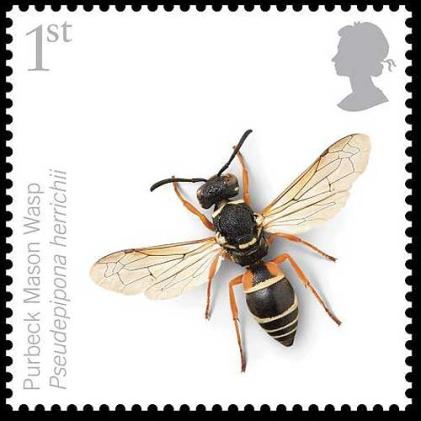Nearly 40,000 conservation-minded drivers counted the bugs splattered on their vehicle number plates this summer, the Royal Society for the Protection of Birds (RSPB) announced yesterday. The motorists were helping the world's first mass survey into possible insect decline, a UK-wide Big Bug Count held throughout June, and the initial results appear to confirm suspicions that insect numbers have fallen, the RSPB said.
Using a cardboard counting-grid dubbed the "splatometer", they recorded 324,814 "splats", an average of only one squashed insect every five miles. In the summers of 30-odd years ago, car bonnets and windscreens would quickly become encrusted with tiny bodies.
"Many people were astonished by how few insects they splatted," the survey's co-ordinator Richard Bashford, said.
People were asked to wash their number plates, drive for between 20 and 80 miles, and count the insects on the plate, using the grid to make counting easier. The study was prompted by fears that a decrease in insect populations could cause problems for birds which rely on them for food.
Swallows and house martins are specialist insect feeders, and seed-eating birds, such as skylarks and house sparrows, both in decline, need insects to feed to their young. Numbers of many bird species have been dropping alarmingly, and the house sparrow population has crashed by 65 per cent in the past 31 years. Theories abound about why insect populations seem to be declining, and include habitat loss and pesticides.
Mr Bashford said. "variation in insect numbers across the UK was small, but there appears to be a gradual increase in numbers from the South-east of England to Scotland. The reasons for this, and the potential consequences for birds, will be the focus of future research."
The RSPB plans more "splatometer" tests to gather more data.
Source: The Independent, 2 September 2004
http://www.independent.co.uk/environment/40000-splatometers-cant-be-wron...
Car 'splatometers' may help scientists solve riddle of insect decline
Introducing the splato-meter! You might think it's wacky. You might think it's the midsummer version of an April fool. But it's a perfectly serious invention, and may yet unlock the secrets of an ominous yet little-publicised environmental phenomenon: the widespread disappearance of insects.
It's so simple you wonder why no one has thought of it before. A postcard-sized piece of plastic film, the splatometer fits to the front of your car and measures the number of airborne bugs that splat against it during a road journey. It is intended to give a statistical basis to a growing public perception - that a lot fewer of them are about than there used to be.
It has been devised by conservation scientists at the Royal Society for the Protection of Birds who intend it to be used by tens of thousands of people in a mass "citizen science" exercise, like its Big Garden Birdwatch, which more than 300,000 people responded to this year.
Concerned over declines in many bird species, the RSPB thinks - like a growing number of conservationists - that a general decline in insect numbers may well be responsible. Bumblebees, mayflies, butterflies, moths, beetles and many other insect species appear to be tumbling in numbers and vanishing from many places, the common species as much as the rare ones.
It is a critical development, because insects are the most numerous of all organisms and underpin all ecosystems, providing food for countless other species and playing a crucial role in plant pollination. But it is only just being noticed by scientists, and hard data is lacking.
The splatometer aims to remedy the data deficiency. At the end of a journey, it peels off from the front of your car and can be scanned by a computer to show how many bugs you have splattered.
"We think the splatometer will give us better information on insect abundance than has been collected before," said Dr Mark Avery, the RSPB director of conservation. "We do think insects are declining, but there aren't lots of long-term data sets that show it, like there are for birds and plants. Insects have been a neglected group."
Source: The Independent, 30 June 2003
http://www.independent.co.uk/environment/car-splatometers-may-help-scien...

- Login om te reageren
